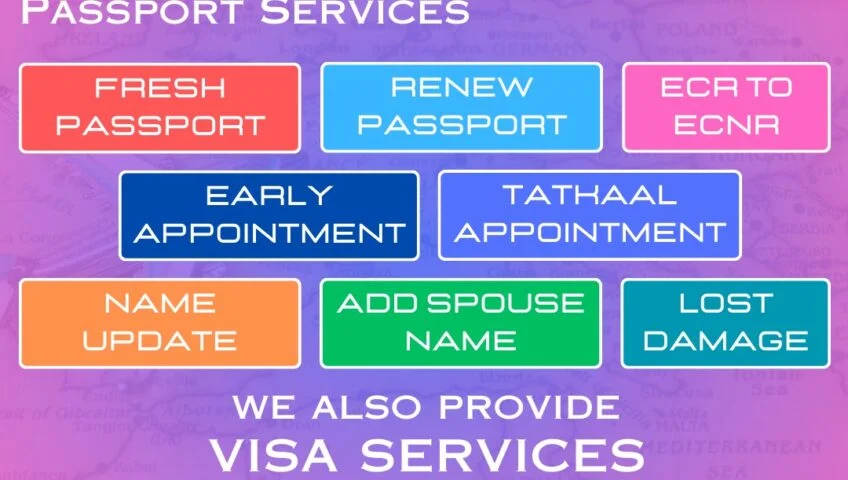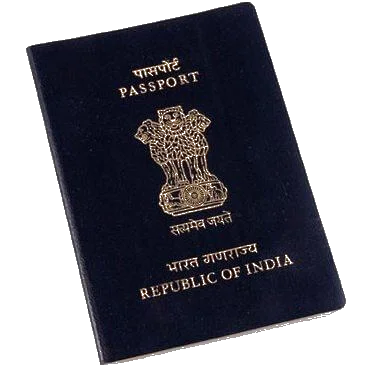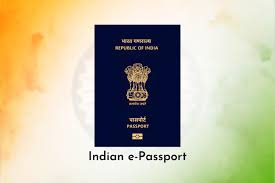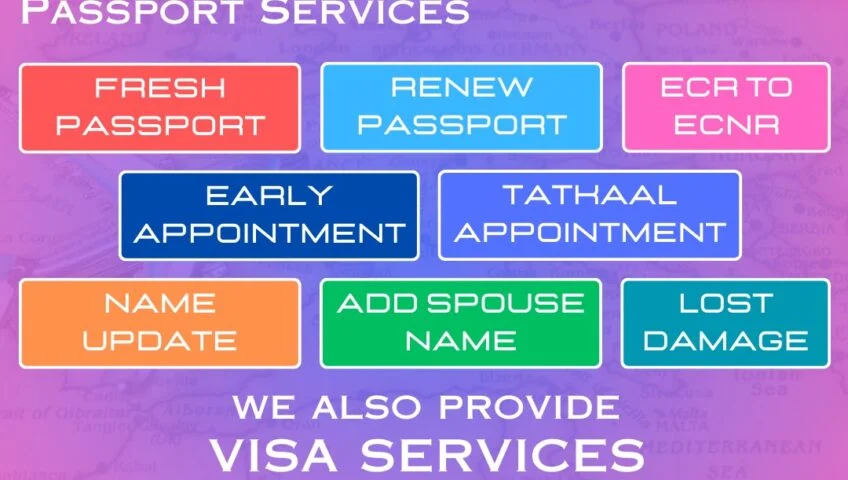What Happens If a Passport Is Lost Suddenly? Losing a passport can be one of the most stressful situations, especially if it happens suddenly while traveling or preparing for an urgent trip. A passport is more than just a travel document—it is proof of your identity and nationality. When it goes missing unexpectedly, it can disrupt your plans, create legal complications, and cause emotional distress.
In this guide, we will explain what happens if a passport is lost suddenly, the immediate steps you should take, how authorities respond, and the process of getting a replacement.

The Impact of Sudden Passport Loss : What Happens If a Passport Is Lost Suddenly?
When a passport is lost suddenly, the impact depends on where you are at the time:
- If you are in your home country:
- You cannot proceed with any international travel plans.
- You will need to apply for a replacement passport before traveling abroad.
- The lost passport will be marked invalid once reported.
- If you are abroad:
- You cannot return home without a valid passport or emergency travel document.
- Hotel check-ins, flight bookings, or even local verification may become difficult without proper ID.
- You must immediately contact your country’s embassy or consulate for assistance.

What Happens Immediately After Reporting
Once you report your passport as lost:
- The passport number is deactivated in the government’s system.
- Your details may be uploaded into the Interpol Lost & Stolen Passport Database to prevent misuse.
- Even if the original passport is found later, it cannot be used again for travel.
This step ensures that if your passport is stolen and used illegally, you are not held responsible.
What Happens If a Passport Is Lost Suddenly?
Steps to Take If a Passport Is Lost Suddenly
1. Stay Calm
Sudden loss can cause panic, but it’s important to stay calm and think clearly. Losing a passport is a common issue, and authorities are prepared to handle it.
2. File a Police Report
- In your country: Lodge a First Information Report (FIR) at the nearest police station.
- Abroad: Report the loss to the local police where you are staying. Get a copy of the report—it is a mandatory document for replacement.

3. Notify Passport Authorities or Embassy
- In India: Visit a Passport Seva Kendra (PSK) or Regional Passport Office (RPO) with the FIR copy.
- Abroad: Go to your nearest Indian Embassy or Consulate. They can issue an Emergency Certificate (EC) for immediate travel back to India.
4. Apply for a Duplicate Passport
- Submit the required documents:
- Police report/FIR
- Proof of identity (Aadhaar, voter ID, etc.)
- Proof of residence
- Passport-size photos
- Filled application form for re-issue of passport under the “Lost Passport” category
5. Emergency Certificate (if abroad)
If you need to travel urgently, the embassy may issue an Emergency Certificate. This is a one-time travel document valid only for your return to India, not for onward international travel.
Timeline for Replacing a Lost Passport
- In India: A duplicate passport may take 7–21 working days, depending on police verification.
- Tatkaal not allowed for lost passports: Lost passports cannot be applied under the Tatkaal scheme.
- Abroad: An Emergency Certificate is usually issued within 1–3 days, but a full new passport can take 2–6 weeks.
Fees for Lost Passport Replacement
In India, the charges are generally higher for lost passport cases:
- 36-page passport (normal): ₹3,000
- 60-page passport (normal): ₹3,500
- Additional penalty charges may apply.
- At embassies abroad, replacement costs may range from USD $100–$200.
Risks of Sudden Passport Loss
- Identity theft: If the passport falls into the wrong hands, it can be misused for illegal purposes.
- Travel delays: Your trip may be canceled or postponed until a replacement is issued.
- Legal inconvenience: Without ID, you may face issues with authorities or while checking into hotels abroad.
- Extra expenses: Replacing a passport may involve higher fees, travel to the embassy, and other costs.
Preventive Measures for the Future
- Keep photocopies: Carry photocopies of the passport’s front and back pages.
- Store digital copies: Save scanned copies on your phone or secure cloud storage.
- Use a passport holder: Keep it safely in a money belt or travel pouch.
- Do not carry passport unnecessarily: When abroad, keep it in a hotel locker unless required.
- Note emergency contacts: Always have embassy/consulate contact numbers handy.
FAQs on Sudden Passport Loss
Q1: Can I still travel with a photocopy of my passport?
No. A photocopy is only helpful for reference but cannot be used for travel. You need an emergency certificate or a new passport.
Q2: What if I find my passport after reporting it lost?
It becomes invalid once reported. You must continue using the replacement passport.
Q3: Can I apply for Tatkaal if I lost my passport suddenly?
No. Lost passports cannot be reissued under the Tatkaal scheme.
Q4: How long does it take to get an emergency travel certificate abroad?
Usually 1–3 days, depending on the embassy and your circumstances.
Sudden Passport Loss: A Crisis Management Guide
The moment you realize your passport is suddenly gone—whether due to theft, misplacement right before a trip, or an unexpected emergency—the panic is immediate. This situation shifts your focus from travel to crisis management.
Here is what happens when a passport is lost suddenly and the immediate, critical steps you must take to get back on track.
1. The Immediate Consequence: Loss of Validity and Identity Risk
The most important truth to internalize is that a suddenly lost passport must be officially reported right away.
- Permanent Invalidation: Once you report your passport as lost or stolen, it is immediately invalidated and cancelled in national and international databases. This cannot be reversed. Even if you find the passport ten minutes later, you cannot use it for travel. This is essential to prevent misuse.
- Identity Theft Protection: The primary reason for immediate reporting is protection. A passport is a premium document for identity thieves. Reporting its loss severely limits the window for criminals to use your identity for international fraud, opening bank accounts, or other illicit activities.
2. The Urgent Response: What to Do in the First Hour
The actions you take depend heavily on your location:
A. If You Are Abroad (Critical Emergency)
Your ability to leave the country has been jeopardized.
- Contact Your Country’s Nearest Embassy or Consulate: This is your first and most vital call. Immediately contact the Consular Section to report the loss and schedule an urgent in-person appointment.
- File a Police Report (If Stolen): If you suspect theft, file a report with the local police. While not always mandatory, a police report can expedite the process at the embassy and is often required for travel insurance claims.
- Prepare for a Limited-Validity Passport: The embassy understands the urgency. They will help you apply for a limited-validity emergency passport. This document is specifically for travelers who must return home immediately or continue urgent travel.
- Timeframe: Depending on the country and workload, an emergency passport can sometimes be issued on the same or the next business day.
B. If You Are At Home (Urgent Pre-Trip Situation)
If you lose it a day or two before a planned flight, you are in an Urgent Travel scenario.
- Report the Loss: Immediately submit the official form for a lost or stolen passport (e.g., Form DS-64 for U.S. citizens) online or by phone.
- Contact a Passport Agency for an Appointment: Since standard mail processing takes weeks, you must apply in person at a regional passport agency or center. Call the national hotline to schedule an Urgent Travel Service appointment. You must have proof of international travel within a specific timeframe (often 14 calendar days).
- Life-or-Death Emergency: If the travel is due to an immediate family member’s death, dying, or life-threatening illness, you can qualify for a Life-or-Death Emergency Appointment, which is prioritized.
3. The Replacement Requirement: Applying In-Person
Regardless of where or why the passport was lost, replacing a lost or stolen passport always requires applying in person, essentially like getting a new passport.
You must submit:
- Proof of Identity: An alternate government-issued photo ID (like a driver’s license).
- Proof of Citizenship: A birth certificate, naturalization certificate, or a clear photocopy of your lost passport. Having copies on hand (physical and digital) is a lifesaver.
- Completed Forms: The loss report form (e.g., DS-64) and the new passport application form (e.g., DS-11).
- New Passport Photo.
- Required Fees: You will pay the full application fee, and likely an extra fee for expedited service, if needed.
4. The Lasting Impact
- Cancelled Visas: If your lost passport contained valid visas (like a tourist or work visa), those visas are also cancelled along with the passport number. You will have to contact the issuing country’s embassy to find out the procedure for transferring or re-applying for the visa.
- Financial Strain: The unexpected replacement fees, plus potential costs for emergency travel, flight changes, and extra hotel nights, can be significant. This is where comprehensive travel insurance may cover some of your unrecoverable expenses.
In the face of sudden passport loss, remember this: Act fast, contact your government authority, and be prepared to appear in person with all available identifying documents. Your passport can be replaced, and your trip can be saved.
ally while traveling or just before a trip, can feel like a nightmare. The key is not to panic but to act swiftly and methodically.
For an Indian citizen, the process is well-defined. By following these steps, you can navigate this stressful situation and get a new passport issued.
Phase 1: Immediate Action (The First 24 Hours)
This phase is about damage control and official documentation.
1. File a First Information Report (FIR) at the Local Police Station:
This is your absolute first and most crucial step. The FIR serves as an official document proving that your passport was lost or stolen. It is a mandatory requirement for the next stages.
- In India: Go to the police station under whose jurisdiction the passport was lost.
- Abroad: Go to the local police station in the foreign country and file a report. Ensure you get a copy of this report.
2. Report the Loss Online (Optional but Recommended in India):
To prevent misuse, immediately report the loss on the Indian Passport Seva website.
- Visit the Passport Seva Portal.
- Navigate to the “File Police Complaint for Lost Passport” section under the “Apply” menu.
- Fill in the required details. This generates a digital trail and officially informs the Passport Office.
Phase 2: The Application for a New Passport
With the FIR in hand, you can now apply for a re-issue of your passport. You will be applying for a “Fresh Passport (Re-issue)” under the “Lost/Damaged” category.
Step 1: Access the Passport Seva Portal
Visit the official Passport Seva website.
Step 2: Fill Out the Application Form Online
- Register or log in to the portal.
- Click on “Apply for Fresh Passport/Re-issue of Passport.”
- Carefully fill out Form No. 1. You will need to select the reason for re-issue as “Passport Lost/Damaged.”
- You will be required to provide the FIR details (number, date, and police station name).
Step 3: Pay the Applicable Fee
The fee for a lost passport is higher than a normal re-issue because it involves additional police verification and is treated as a Tatkaal (urgent) application. Check the latest fee structure on the website.
Step 4: Schedule an Appointment
Book an appointment at your nearest Passport Seva Kendra (PSK) or Post Office Passport Seva Kendra (POPSK). The online portal will show available slots.
Step 5: Visit the Passport Sevan Kendra for Appointment
Carry all the original documents along with one self-attested photocopy of each.
Phase 3: The Crucial Document Checklist
Being prepared with the right documents will make the process smooth. Carry the following to your appointment:
- Printed Application Receipt: The copy you get after online form submission.
- Original FIR: The police report for the lost passport.
- Proof of Address: Aadhaar Card, Voter ID, Utility Bills (electricity, water, gas), etc.
- Proof of Date of Birth: Birth Certificate, Aadhaar Card, PAN Card, or School Leaving Certificate.
- Affidavit: A sworn affidavit on a non-judicial stamp paper stating the circumstances of the loss of the passport. (Your PSK official can guide you on the exact format).
- Police Clearance Certificate (if applicable): For certain categories, this might be requested.
- Existing Passport Details: If you have a photocopy or a scan of your lost passport, carry it. It is extremely helpful.
- Recent Passport-Sized Photographs: As per the specified guidelines.
Special Scenario: What if You Lose Your Passport Abroad?
This is more complex, but the Indian government has a robust system in place.
- File a Police Report: As mentioned, this is your first step in the foreign country.
- Contact the Nearest Indian Mission: Immediately get in touch with the Indian Embassy or Consulate in that country.
- Apply for an Emergency Certificate (EC): This is a one-way travel document that allows you to return to India. It is not a replacement for a passport.
- Apply for a New Passport: Simultaneously, you can apply for a fresh passport at the Indian Mission. The process is similar—you will need the local police report, a copy of the lost passport (if available), and other supporting documents. The mission will guide you through their specific procedure.
What to Expect After Submission
- Police Verification: For a lost passport, Post-Police Verification is mandatory. After your application is processed at the PSK, the details are sent to your local police station for verification. An officer may visit your residence to confirm your details.
- Passport Dispatch: Once the police verification is cleared (or in some Tatkaal cases, initiated), your new passport will be printed and dispatched to your address. You will receive an SMS and email with the tracking details.
Important Precautions and Pro-Tips
- Keep Digital Copies: Always have a scanned copy of your passport’s first and last pages, visa pages, and your ticket stored securely in your email or cloud storage. This is a lifesaver.
- Inform Your Airline/Hotel: If you lose your passport while traveling, inform your airline and hotel, as they might have procedures to assist you.
- Check Your Visa Status: If the lost passport had valid visas, you will have to apply for them again with your new passport. Contact the respective embassies for procedures.
- The New Passport Number: Remember, you will receive a new passport with a new number. Your old passport is officially invalidated.
Losing a passport is undoubtedly a stressful event, but it is a recoverable situation. By staying calm, following the official protocol step-by-step, and ensuring you have the correct documentation, you can replace your lost passport and get back on track.
This article is for informational purposes only. For the most accurate and updated information, please always refer to the official Passport Seva website (www.passportindia.gov.in) or contact your nearest Passport Office.
Disclaimer
This article is for informational purposes only. Rules, fees, and procedures may vary by country and embassy. Always check the latest official guidelines from the Passport Office or Embassy before applying.
Conclusion
Losing a passport suddenly can be stressful, but it is a manageable situation. Governments and embassies worldwide are equipped to help travelers in distress. By acting quickly—filing a police report, informing the passport office or embassy, and applying for a replacement—you can minimize the impact. To avoid such situations in the future, always carry copies, secure your passport, and know the emergency procedures before you travel.

